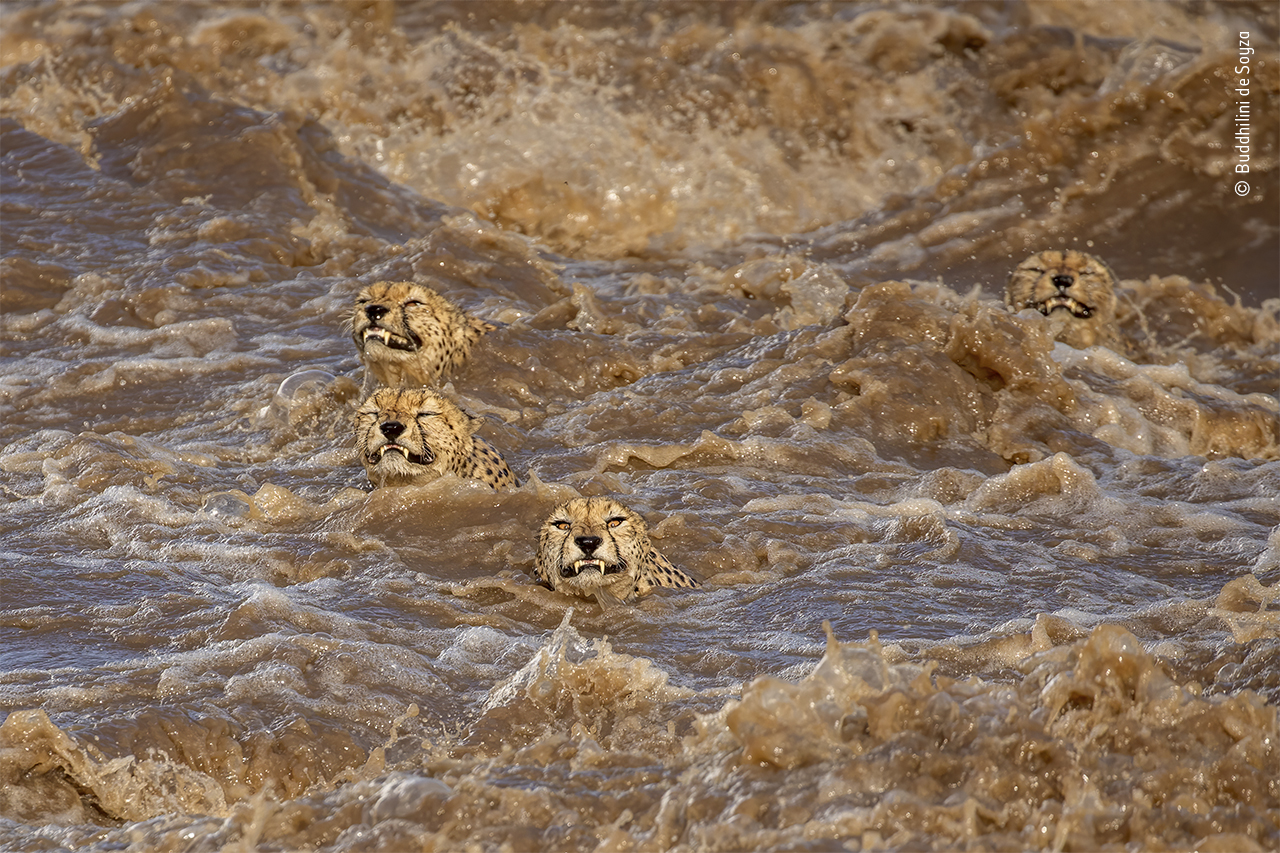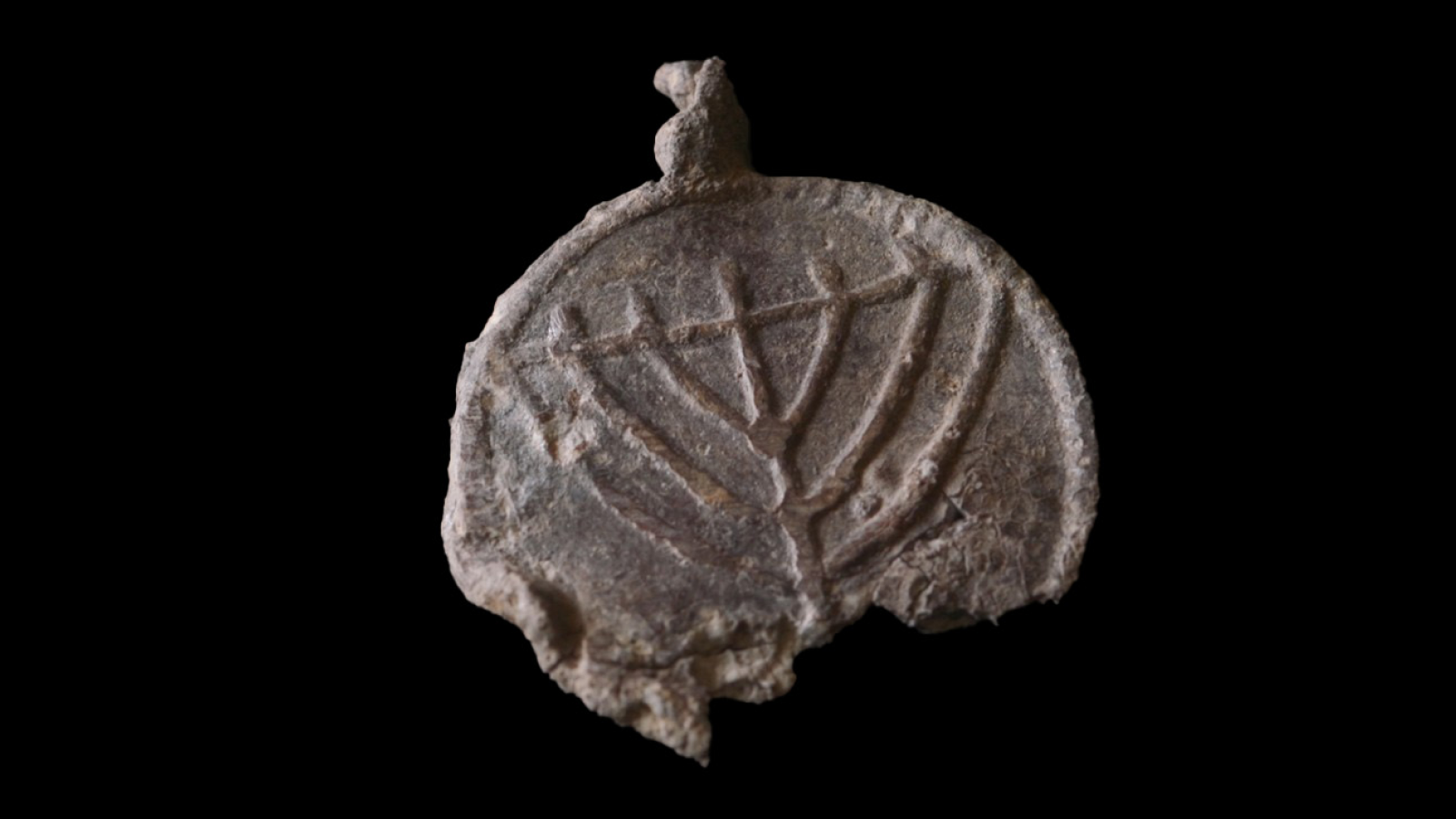Cheetahs battle raging river in stunning photo. Did they survive?
The cheetah photo is a Wildlife Photographer of the Year entry.
A stunning photo captures a group of cheetahs, the world's fastest land sprinters, struggling to swim through a raging river in Kenya.
The group of male cheetahs was fording the Talek River in the Maasai Mara National Reserve in an effort to access better hunting grounds. The striking photo is one of the highly commended entries in the 2021 Wildlife Photographer of the Year competition.
Buddhilini de Soyza, an investment banker and amateur photographer, took the photo on a trip to Kenya in January 2020 while with her husband and a Maasai guide, after spending several hours watching the cheetahs pace up and down the river bank. Suddenly, the lead cheetah jumped into the water, and the rest followed.
"I just couldn't believe my eyes," de Soyza told Live Science. "I don't actually remember clicking [the photo]. I obviously did because I've got a good 50, 60 shots of them crossing. All I do remember shouting is, 'Oh my god what are they going to do? They're going to die!'"
Related: The 100 best science photos of 2020
Cheetahs (Acinonyx jubatus) are strong swimmers, but like many cats can be hesitant around water. The river in the photo was rough following heavy rain and flooding, but the cheetahs needed to cross it to reach the larger side of their territory, which had more prey, according to de Soyza. She took the photo as the cheetahs hit the most turbulent part of the river.
"I feel like the lead cheetah is talking to me," de Soyza said of the photo. "He's looking straight at me, so it almost feels like he's just saying, 'Put down that camera and help me.'" The river’s current dragged the cheetahs about 330 feet (100 meters) downstream, but they successfully made it across.
Get the world’s most fascinating discoveries delivered straight to your inbox.
The four cheetahs in the photo are part of a group of five males called the "Tano Bora," which means "magnificent five" in Maasai or Maa, the native language of the Maasai people. The fifth cheetah was the most reluctant to enter the water and attempted the swim slightly behind the others. He disappeared underwater for 15 to 20 seconds, according to de Soyza, who feared the cheetah was done for until he reemerged and swam to safety.
"When all five of them made it across we were just celebrating," de Soyza said. "We were hugging each other, we had tears of joy in our eyes and then, it almost seemed like the cheetahs were high on adrenaline as well, as they just ran straight onto the savannah and tried to hunt."
Female cheetahs are usually solitary unless they are raising cubs, but males may live in small groups of two to three brothers or unrelated males, called "coalitions," according to the International Union for Conservation of Nature (IUCN). This makes the Tano Bora coalition of five an unusually large group. Since the photo was taken, one of the cheetahs has left the coalition, according to de Soyza.
In the weeks leading up to de Soyza's Kenya trip, relentless, unseasonable rainfall potentially tied to climate change triggered the worst flooding local elders remembered, according to the Natural History Museum, London. The cheetahs didn't attempt to swim back across the river in the days following their epic plunge, and de Soyza saw them successfully hunt a wildebeest two days later on the same side.
Wildlife Photographer of the Year is developed and produced by the Natural History Museum, London. The museum's exhibition showcasing the image of the cheetahs and other entries opens in London on Oct. 15.
Originally published on Live Science.

Patrick Pester is the trending news writer at Live Science. His work has appeared on other science websites, such as BBC Science Focus and Scientific American. Patrick retrained as a journalist after spending his early career working in zoos and wildlife conservation. He was awarded the Master's Excellence Scholarship to study at Cardiff University where he completed a master's degree in international journalism. He also has a second master's degree in biodiversity, evolution and conservation in action from Middlesex University London. When he isn't writing news, Patrick investigates the sale of human remains.



